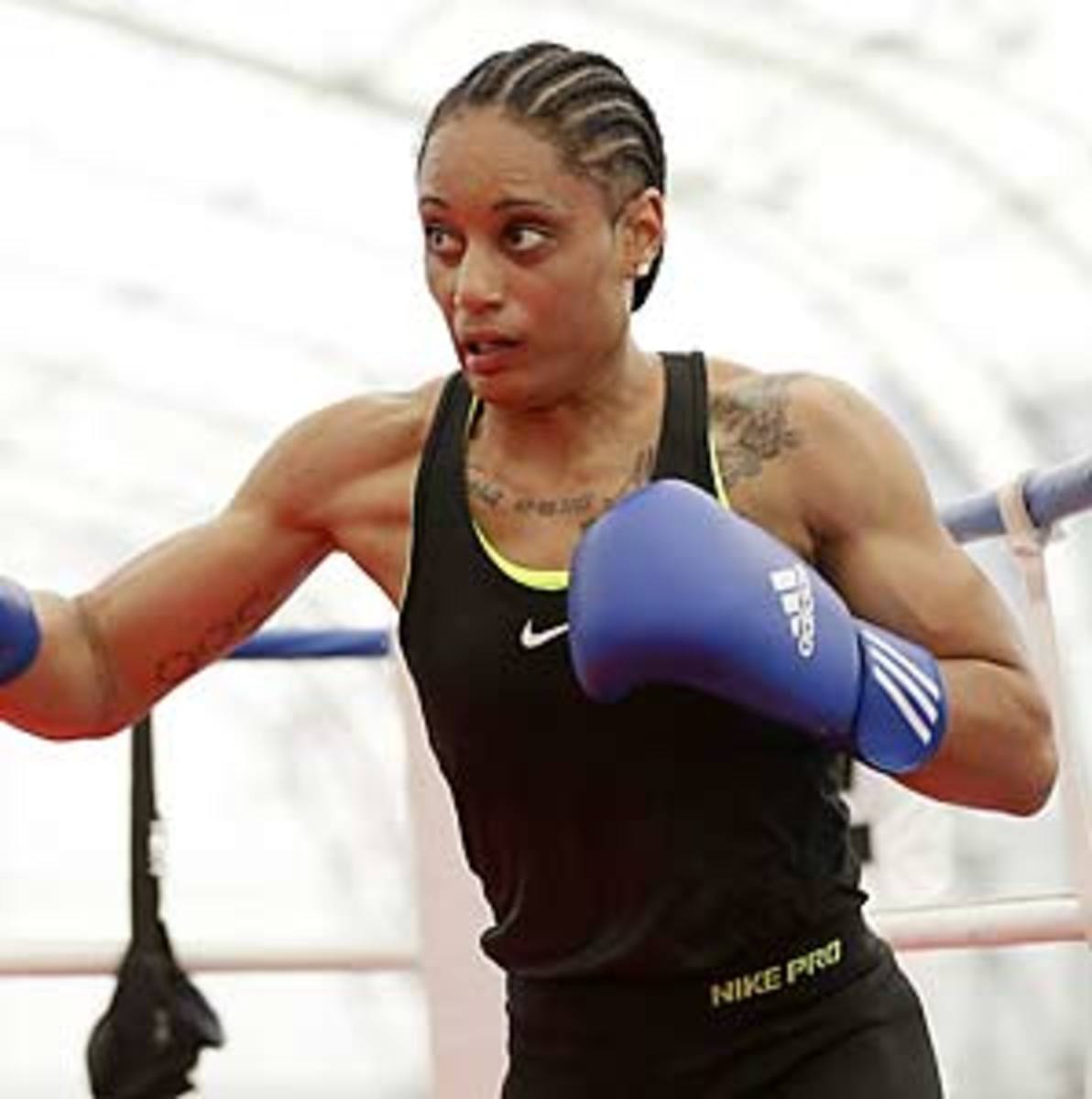Underwood drops historic match for future of Olympic women's boxing
LONDON -- Queen Underwood bit her lower lip and pinched back the tears, the pain, frustration and hollowing sense of unfulfillment that accompanies any Olympic defeat washing over her. After a 21-13 loss to British lightweight Natasha Jonas, Underwood was in no mood to reflect on the magnitude of the moment.
"I don't think it's enough," Underwood said, when asked about being part of the first crop of female Olympic boxers. "I gave away half of my life to this. It doesn't feel like the reward of just being here is enough."
Years from now, when she has distance from the disappointment, Underwood may feel different. This was historic. Think of what women's boxing went through to get here. It was banned in many countries in the 20th century. It was a sideshow in the rest. The most press the sport received came in 1987, when Marian Trimiar went on a hunger strike for equal promotion and equal pay. Critics still crack it like a pinata while crusty relics like Tommy Gallagher still call the sport an abomination.
As weightlifting, taekwondo and modern pentathalon penetrated the Olympic gender barrier, through 2008 women's boxing continued to be shut out.
The IOC wised up in time for these Olympics, and the sport will ultimately reap the benefit. No, for the most part, its debut wasn't pretty. Sunday was the kind of punch-and-wrestle show that would draw a cacophony of boos in a men's competition. Of the 12 straight decisions on Sunday afternoon only one or two drew anything more than the occasional "ooh" and a steady stream of polite applause from the sold out crowd.
But like any sport, women's boxing will continue to improve. These women don't train anywhere near as much as the men do. Most have full time jobs. India's Mary Kom runs a gym and is a mother of two. Australia's Naomi-Lee Fischer-Rasmussenquit her gig as a personal trainer to prepare for the Olympics. Not that she is complaining.
"This whole experience has been surreal," Fischer-Rasmussen said. "It's just ignited my passion for boxing. I feel when I drop back down to my proper weight category, I can start winning some medals."
Ah yes, the weight classes. There are three Olympic weight classes (112-pounds, 132-pounds and 165-pounds) for the women, which is beyond absurd. It forces talented women like Fischer-Rasmussen, a natural 147-pounder, to fight at 165. Andrecia Wasson, the 2010 world champion at 152-pounds, isn't here because she got beat up fighting at 165.
"I was giving up a lot of weight and height," Fischer-Rasmussen said. "I hope I don't have to do that again."
As women's boxing continues to grow -- and several coaches in London said the number of female fighters signing up has spiked since the Olympic announcement -- so should the weight classes, quickly.
"Everyone else gets to see what we have been seeing for the last ten years," said U.S. assistant coach Charles Leverette. "Women's boxing has always been exciting. You wait until these brackets start getting tighter and tighter. I just came from the world championships. I've never seen anything like it in my life. The competition, every night you never knew who was going to come out. The seedings didn't mean anything. They don't mean anything here, either."
As Underwood walked towards her locker room, a smile finally creased her face. Her mother, Alonna, had flown in from the U.S. to surprise her. It was a brief moment of joy in an otherwise tough day. The loss will linger but years from now Underwood will remember what she was a part of. She will remember she was a pioneer, a part of something special.






